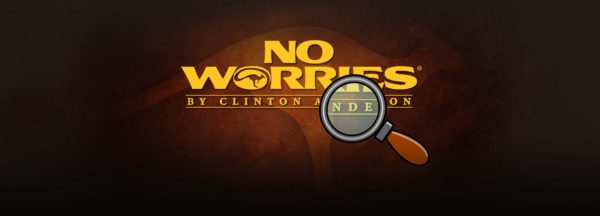Find it on the No Worries Club Website: Put an End to Pawing

Pawing the ground with one front hoof is a clear sign of impatience and frustration on the horse’s part. You’ve probably seen the horse that digs himself into a hole when left tied up or bangs a front hoof against the stall impatiently until he’s fed. It’s kind of like a little kid rolling around on the ground at the shopping center because his mother won’t buy him candy. He’s spoiled and having a bit of a tantrum.
If your horse constantly paws when you tie him up or at feeding time, you’ll want to check out Clinton’s fix. He addresses the issue and shares a personal story of how he corrected his mare Mindy from doing the bad habit in the winter 2012 issue of the No Worries Journal. Read the article on the No Worries Club website now.
The No Worries Club website contains a complete library (43 issues) of Clinton’s No Worries Journal that is available to members only. This exclusive content includes how-to training articles, inspirational stories from horsemen who are applying the Method to their horses, Clinton’s personal thoughts and lessons learned throughout his career, and behind-the-scenes access to the Downunder Horsemanship Ranch and how Clinton cares for his horses. Learn more about the No Worries Club at www.noworriesclub.com or call 888-287-7432.
